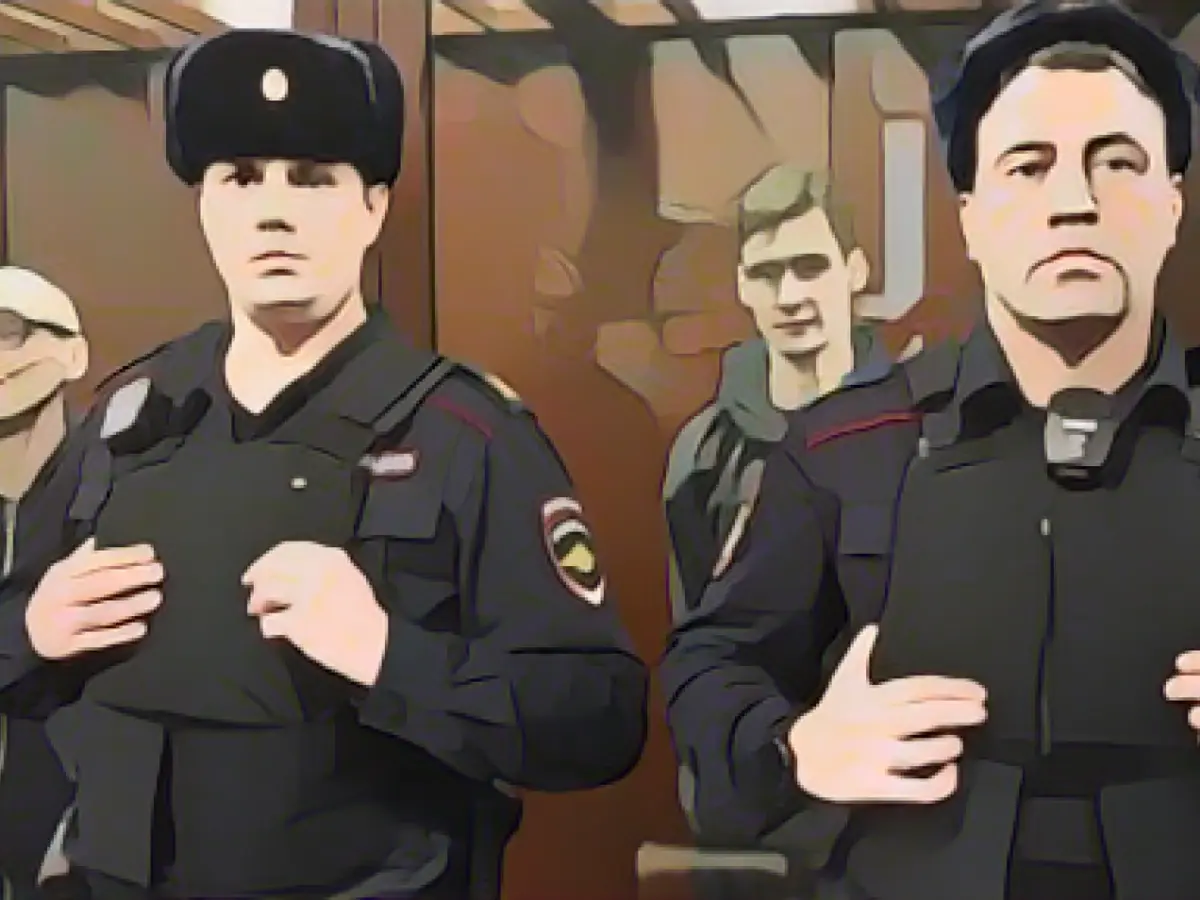Multi-year prison sentences for two Russians for reading about the Ukraine conflict
The two men were charged with "incitement to hatred" and "public calls for activities against state security". Supporters of the two poets shouted "Shame!" in the courtroom after the verdict was announced, as a journalist from the AFP news agency observed. Kamardin's father spoke of "absolute arbitrariness". Outside the court, the police arrested several supporters of the defendants.
Kamardin, 33, and Shtovba, ten years his junior, were arrested in September 2022 after taking part in a public reading in Moscow in front of a statue of the poet Vladimir Mayakovsky - a meeting place for dissidents since the Soviet era.
During the reading, Kamardin recited a poem entitled "Kill me, militiaman!", which is highly critical of the pro-Russian separatists in eastern Ukraine. He also shouted slogans against the imperial project "New Russia", which aims to annex the south of Ukraine.
The following day, Kamardin was detained at his home. According to his own account, he was beaten by the police and raped with a barbell. The officers also tried to intimidate his then girlfriend and now wife Alexandra Popova. In an interview with the AFP news agency at the end of 2022, Popova said that the police threatened her with "gang rape", beat her and sprayed glue on her cheeks and mouth.
Popova called the sentence that has now been announced a "very harsh punishment". "Seven years for poetry, for a non-violent crime," she said in the courtroom. "If we had normal courts, something like this wouldn't happen," criticized Popova. She was taken away by the police after her statement to journalists.
Kamardin himself had said in a statement released by his supporters before the verdict was announced that he was no hero: going to prison "for what I think was never part of my plans". He asked the judge to release him, but said he would stay away from "sensitive issues" in future and not comment on them publicly.
The 23-year-old Shtovba also emphasized that he had not broken the law. In his final statement in court, which was published by the independent website "Mediazona", he asked the judge: "What have I done that is illegal? Read poetry?"
Russia has been suppressing critical voices for years, but the crackdown on dissent has taken on a new dimension with the start of the offensive against Ukraine. Since it began in February 2022, thousands of Russians have been sentenced for criticizing the offensive, in some cases to very harsh sentences. Unlike the trials of prominent critics, the trials of "ordinary" Russians usually take place in camera.
Read also:
- This will change in December
- Attacks on ships in the Red Sea: shipping companies avoid important trade route
- Houthi rebels want to launch further attacks despite international coalition
- USA forms military coalition against Houthi attacks on ships in the Red Sea
- The two men were facing imprisonment due to their reading about the Ukraine conflict, specifically for incitement and public calls against state security.
- The police in Moscow arrested several supporters of the defendants after the court verdict, a perennial issue in Russia's suppression of critical voices.
- The men were arrested in September 2022 in Moscow at a public reading in front of Vladimir Mayakovsky's statue, a venue known for dissident gatherings since the Soviet era.
- The Russians, Kamardin and Shtovba, were charged for their critical poems about the pro-Russian separatists in eastern Ukraine and the imperial project "New Russia".
- Kamardin's father criticized the arbitrary nature of the court proceedings, while Popova called the sentencing a harsh punishment for non-violent expressions of dissent.
- For Kamardin, prison was never part of his plans, and he asked for leniency, promising to avoid future sensitive topics.
- Shtovba also argued that he had not broken any law, asking the judge why poetry should be illegal.
- The crackdown on dissent in Russia has intensified since the start of the Ukraine conflict, with thousands facing imprisonment for criticizing the offensive.
- These trials often occur in secret, contrasting with the high-profile trials of prominent critics in Russia.
Source: www.stern.de







